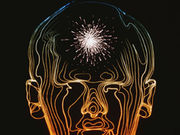Although treatment seems safe, benefit isn’t yet clear
THURSDAY, July 28, 2016 (HealthDay News) — Deep brain stimulation (DBS) appears safe for patients with early Alzheimer’s disease (AD) — and might even slow down memory loss in some, according to a preliminary study published online July 18 in the Journal of Alzheimer’s Disease.
Andres Lozano, M.D., Ph.D., a neurosurgeon at Toronto Western Hospital, and colleagues implanted DBS systems in 42 patients with mild Alzheimer’s symptoms, 12 of whom were younger than 65. The system was activated in only half of the patients, with the other half serving as control. The system was programmed to stimulate the fornix.
Over one year, the researchers found, the treatment appeared relatively safe. In patients whose DBS system was turned on, cerebral glucose metabolism in key brain areas increased over the first six months, although this was no longer apparent after one year. For patients younger than 65, cognitive function worsened when the DBS system was turned on; for older patients, the treatment seemed to slow down their decline over one year.
“DBS for AD was safe and associated with increased cerebral glucose metabolism,” the authors write. “There were no differences in cognitive outcomes for participants as a whole, but participants aged ≥65 years may have derived benefit while there was possible worsening in patients below age 65 years with stimulation.”
Full Text
Copyright © 2016 HealthDay. All rights reserved.








